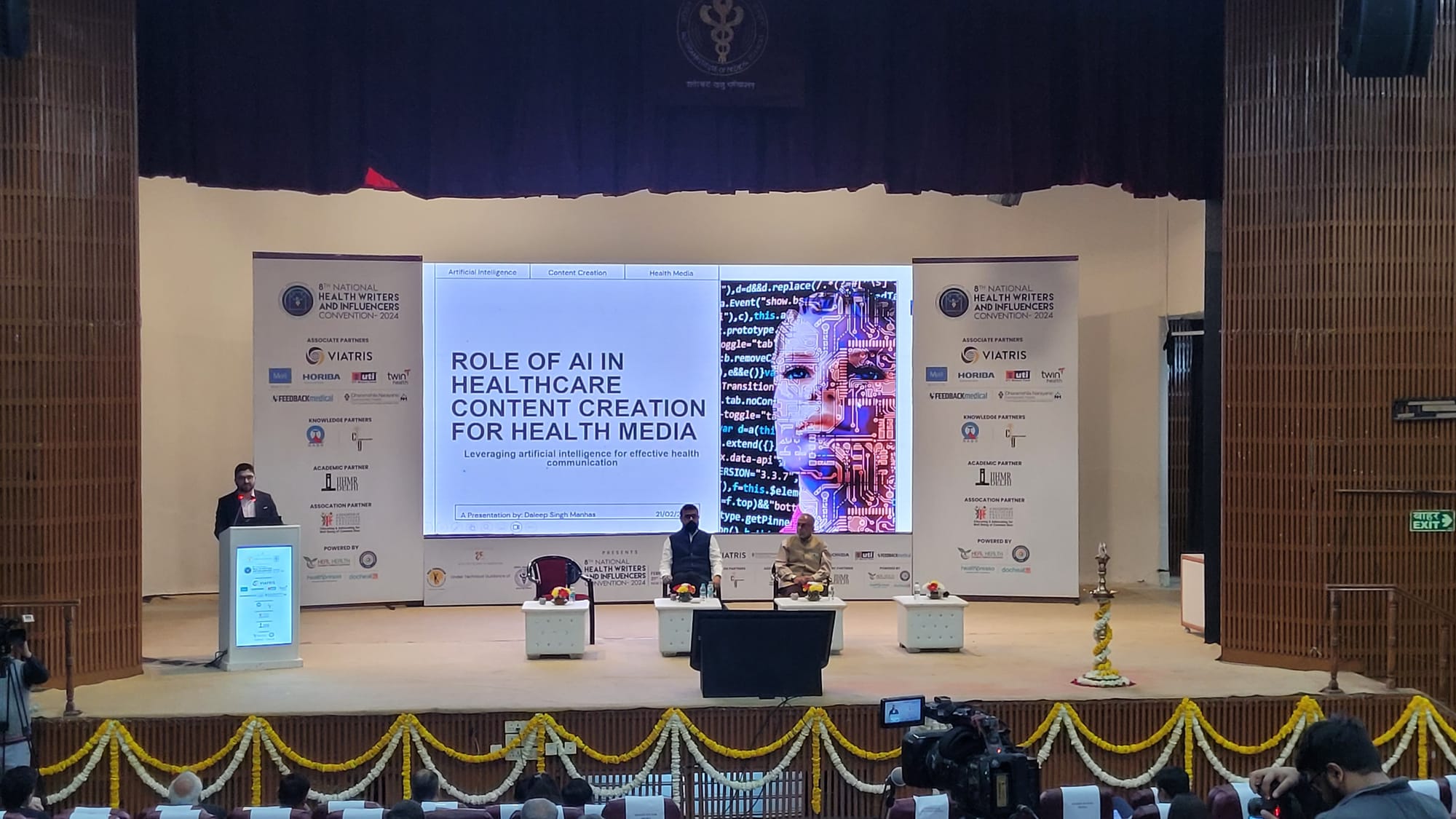Experts Explore Innovative and Collaborative Ways to Fight TB in India

at Asia's Largest Health Writers and Influencers Convention
Tuberculosis (TB) is one of the leading causes of death and disability in India, affecting millions of people every year. To address this public health challenge, India has launched the National Tuberculosis Elimination Programme (NTEP), which aims to end TB by 2025. However, there are still many gaps and barriers that hinder the effective diagnosis, treatment and prevention of TB, especially for drug-resistant TB (DRTB), which is harder to cure and more contagious.
To discuss the latest innovations, challenges and collaborative solutions in the fight against TB, a session on 'Turning the tide on tuberculosis: Innovation, Challenges and collaborative solutions India fights TB presentation' was held at the National Health Writers & Influencers Convention (NHWIC-2024), Asia's largest congregation of health writers and influencers, where over 60 traditional media and 15 top new age media gathered on February 21st at the AIIMS, New Delhi. This is a Mahakumbh of health writers. The 8th edition of this prestigious event, organized by HEAL Foundation at the AIIMS, New Delhi, brought together eminent experts, policymakers, researchers, and practitioners from the healthcare landscape of India.

Dr (Prof) Rupak Singla, HOD of TB & Chest Disease, NITRD, highlighted the importance of early and accurate diagnosis of TB, the availability of new drug regimens, and the use of digital technology for TB management. He also shared the experience of running a difficult to treat TB clinic, which is a unique model of online consultation and follow-up for patients with complex and resistant forms of TB. He said that this model has been replicated by neighbouring countries and has shown good results. He also cited the example of Bollywood actor Amitabh Bachchan, who had TB and took medicines and cured, to show that TB is not a death sentence and can be cured with proper treatment.
Dr Sanjay K Mattoo, Adl Deputy Director General, Central TB Division, NTEP, MoHFW GOI, gave an overview of the NTEP and its achievements and challenges. He said that India has made significant progress in scaling up molecular diagnostics, providing the most advanced medicines, and implementing the largest digital programme for TB surveillance and monitoring. He also mentioned the various collaborations and partnerships that the NTEP has forged with other ministries, such as labour, HRD and railways, and with civil society and private sector organizations, to reach out to more TB patients and provide them with quality care and support. He also spoke about the various initiatives and schemes that the NTEP has launched to incentivize and empower TB patients, such as the Aarogya Saathi app, which provides information and counselling to patients, and the Nikshay Poshan Yojana, which transfers money directly to the patients' bank accounts.
Dr Vijay Hadda, Additional Professor, Pulmonary, Critical Care & Sleep Medicine, AIIMS New Delhi, focused on the social and environmental determinants of TB, such as poverty, illiteracy, malnutrition, and poor ventilation. He said that TB is a disease of the poor and marginalized, and that addressing the social and economic factors that make people vulnerable to TB is essential for its elimination. He also praised the NTEP for running a good programme that covers all aspects of TB control, from diagnosis to treatment to prevention. He also shared an example of a successful collaboration between the NTEP and the private sector, which is the Apollo Tyres initiative, which provides TB screening and treatment to truck drivers and their families, who are at high risk of TB due to their occupation and lifestyle.
The session was well received by the audience, who asked many questions and expressed their interest in learning more about the topic. The panellists also encouraged the health writers and influencers to spread awareness and information about TB and its prevention and treatment, and to support the NTEP in its goal of ending TB by 2025.




